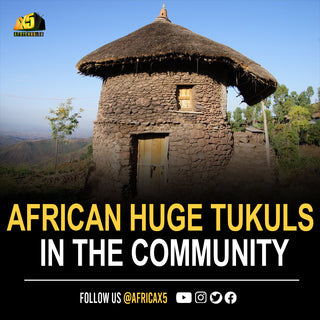Here are some common uses:
1. Community Gathering Space: The tukul is a central meeting place for the community, serving as a venue for discussions, celebrations, and important gatherings. Elders share wisdom, and community members come together to make decisions that impact everyone.
2. Cultural Significance: The tukul is a living testament to
the cultural heritage of the community. It houses traditional artifacts, symbols, and serves as a space for passing down oral histories, preserving the rich cultural identity of the people.
3. Shelter and Housing: The tukul provides shelter for families, offering a place to sleep, cook, and spend time together. Its sturdy structure protects against the elements, creating a safe haven for residents.
4. Spiritual Ceremonies: The tukul often plays a role in spiritual practices and ceremonies. It may be a place for rituals, prayers, or other religious activities that are integral to the community's belief system.
5. Storage: The spacious interior of the tukul is ideal for storing essential supplies, food, and tools. Its design allows for efficient storage, contributing to the community's ability to sustain itself.
6. Educational Space: In some instances, the tukul may serve as an informal school or a space for imparting knowledge to the younger generation. Elders may share traditional skills, stories, and practical wisdom with the youth.
7. Artistic Expression: The exterior and interior of the tukul often feature artistic expressions, showcasing the creativity and craftsmanship of the community. Intricate patterns and designs may be woven into the thatched roof or painted on the walls, adding a touch of aesthetic beauty.
8. Social Bonds: The tukul fosters social bonds within the community. It's a place where friendships are formed, and relationships are strengthened through shared experiences, celebrations, and daily interactions.
9. Economic Activities: Some tukuls may host small-scale economic activities, such as local markets or craft workshops. This contributes to the economic sustainability of the community.



